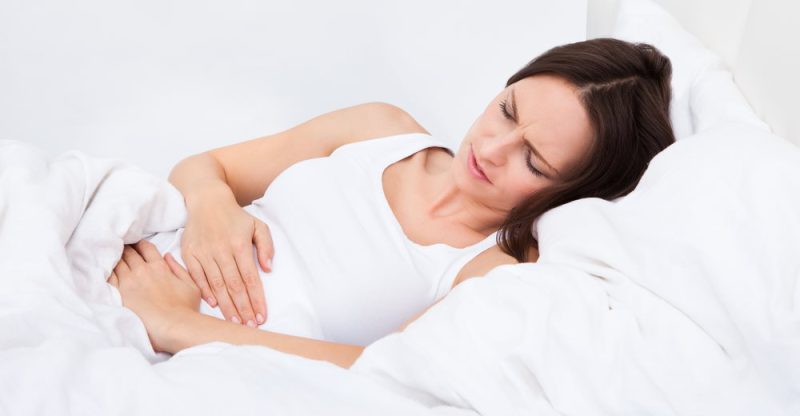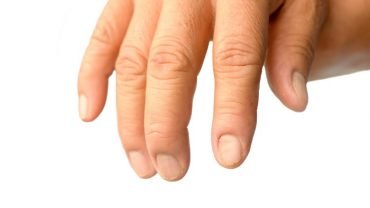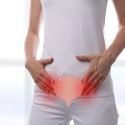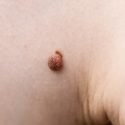PMS Symptoms, Causes and Remedies
PMS is a term that’s thrown around in women’s health circles, but what are the symptoms of PMS, and how can you deal with them naturally? PMS symptoms can be reduced by making lifestyle changes. These include reducing stress, eating a diet rich in protein and fiber, getting enough sleep, and exercising. Find out more about this complex condition.
In her lifetime, the typical woman will have 450 periods. That’s three times than what our forefathers had, even though they lived shorter lives and spent more time pregnant and nursing. And, given that more than 75% of today’s women experience PMS symptoms during menstruation, it’s apparent that many women are suffering from the unpleasant side effects of this normal biological process.
In fact, 30 to 40% of women with PMS symptoms claim it interferes with their everyday activities, leading many to seek natural PMS and cramp relief.
You are not, however, alone. PMS is a hormonal imbalance that affects women of reproductive age and causes psychological and physical period symptoms. If you’re a woman who’s had to struggle with PMS symptoms for years, you’ll be surprised to learn that physicians scarcely acknowledged this monthly health issue until the 1980s. Nevertheless, the symptoms of PMS are well-known and unpleasant for those who suffer from it.
PMS symptoms may appear anywhere from a week to two before your period and range from mild to severe. Dysmenorrhea is characterized by painful menstruation, usually including stomach pains (one of the most unpleasant period symptoms).
Hormone balance is the most important aspect in determining whether or not someone has PMS symptoms. You may have come on this page via Googling “how to get rid of period cramps?” I have the answer to that issue and many others by making easy, natural dietary and lifestyle modifications that are neither difficult nor expensive, but they do work.
Symptoms and Causes
PMS symptoms often begin 7 to 10 days before menstrual flow starts and last for a few days. Severe PMS symptoms are referred to as PMDD (premenstrual dysphoric disorder). This illness has the same cycle and symptoms as the previous one, but it has a more devastating result. However, some months will have greater or better symptoms than others, even with average PMS.
PMS may cause the following symptoms:
- Acne
- Backache
- Stomach/abdomen bloating
- Appetite changes, including a desire for particular meals
- Constipation
- periods of weeping
- Depression
- a rapid pulse
- Irritation, nervousness, or worry
- Exhaustion
- Headache
- Flashes of heat
- Joint discomfort
- Swings in mood
- Lessened interest in sex
- Breasts that are tender and swollen
- Brain fog/difficulty focusing
- Sleeping problems
- Hands or feet that are swollen
- Desire to be alone
- Gaining weight
The specific cause of PMS is unknown, according to conventional medicine. However, it seems to be linked to fluctuations in hormone levels, such as estrogen and progesterone, that occur in the run-up to menstruation. Underlying sadness and anxiety are typical among PMS and PMDD sufferers. The hormonal changes that occur during menstruation are thought to exacerbate the symptoms of mood disorders.
PMS symptoms may be caused by a variety of factors, including:
- Hormonal imbalances and changes
- Changes in brain chemistry
- A poor diet, which includes ultra-processed foods
- Vitamin and mineral deficiencies
- Stress
- Emotional issues
- Anxiety or depression
- Thyroid issues
- Toxins in the environment
- Caffeine and alcohol use might affect mood and energy levels.
- Excessive salt consumption may lead to fluid retention and bloating.
- Obesity
- Lack of physical activity
Anxiety, depression, chronic fatigue syndrome, endocrine system disorders, irritable bowel syndrome (IBS), and menopause are among illnesses that overlap symptoms with PMS. Therefore, your doctor may examine you to discover whether one of these other problems is causing your symptoms.
The good news is that by improving your nutrition, managing stress, and using some of the natural therapies listed, you may dramatically minimize PMS symptoms and eliminate period cramps.
Conventional Treatments
The most usually prescribed conventional therapy for PMS symptoms is nonsteroidal anti-inflammatory medicines (NSAIDs), such as ibuprofen. In addition, PMS patients often use acetaminophen-containing pain medications. These medications provide symptomatic pain relief in roughly two-thirds of women, but they may also have negative side effects. Ibuprofen has a warning on the container about significant gastrointestinal side effects, including stomach, bleeding (be cautious, ibuprofen overdose is a thing, too), and acetaminophen-containing medications have a warning on the bottle about potential liver damage.
An over-the-counter drug like Midol, which primarily serves to ease the most unpleasant PMS symptom: menstrual cramps, is a common therapy for period cramps. While an over-the-counter solution such as this may be effective, it is not without risky side effects. Increased lung secretion thickness, prolonged difficulty sleeping, irritation of the stomach or intestines, and stomach pains are all potential and even probable adverse effects. Acute liver failure and blood problems are among the rare adverse effects.
So your period cramps may go away, but you may develop other health problems, some of which may be dangerous. Since it comes to premenstrual syndrome, I strongly advise you to avoid the merry-go-round of conventional therapy, particularly when there are natural remedies that may go to the source of your period problems.
Natural Treatments
Women who suffer from PMS symptoms are often deficient in calcium, B vitamins (particularly B6), and vitamins K and E, among other minerals. Magnesium insufficiency, for example, has a function. When you don’t get enough of these nutrients in your diet regularly, your body responds by exacerbating your PMS symptoms. Here are some of the greatest meals to eat to get essential nutrients and reduce PMS symptoms:
1. Plant-based foods
Plant-based diets rich in vegetables, fruits, nuts, seeds, and herbs have been demonstrated to reduce PMS symptoms in women.
2. Foods high in calcium
When it comes to effective dietary remedies for PMS, calcium is one of the most science-backed substances thus far. Raw milk, cooked greens, broccoli, sardines, and yogurt are all acceptable options. Kefir’s health advantages may also help with menstruation cramps and other symptoms.
3. Foods that are high in fiber
Because PMS may create GI issues, consuming at least 30 grams of fiber every day is crucial. Fiber also aids hormone balance by attaching to estrogen and transporting it out from the body. High-fiber meals are essential while seeking the finest PMS foods.
4. Vegetables with plenty of leaves
These vegetables have a diuretic effect and are high in calcium, magnesium, and vitamin K, which help relieve period cramps.
5. Flaxseed
Flaxseed products may aid in the maintenance of healthy estrogen metabolism, which is crucial in the treatment of PMS symptoms.
6. Wheat germ
This dish is high in the vitamins E and B. Almonds, sunflower seeds, and spinach are also high in vitamin E.
7. Fish captured in the wild
Foods strong in omega-3 fats, such as wild-caught salmon, sardines, and anchovies, may help decrease pain and inflammation, which can exacerbate PMS symptoms.
8. Avocado
Because its nutritional composition is rich in healthy fat, fiber, magnesium, potassium, and vitamin B6, eating a half or whole avocado daily helps naturally regulate hormones. The perfect PMS food pairing is an avocado cut up in a salad with dark, leafy greens and feta cheese, which gives a hefty dosage of PMS symptom-fighting nutrients in one healthful meal.
Foods that Make PMS Symptoms Worse
1. Hydrogenated fats and trans fats
PMS symptoms may be exacerbated by a diet heavy in these synthetic fats. These substances are typically found in overly processed meals. Even if the nutritional profile states 0 percent trans fat, read the ingredients list and avoid anything that reads “hydrogenated” or “partially hydrogenated.”
2. Any food allergy that may exist
Food allergies might exacerbate PMS symptoms. You may use an elimination diet to determine whether you have any dietary allergies or intolerances. You may also request testing from your doctor.
3. Refined sugar and high fructose corn syrup
Causes blood sugar variations, which may increase mood swings, headaches, and problems focusing. In addition, sugar and HFCS deplete the body with essential nutrients and promote inflammation.
4. Salt
A high-sodium diet might exacerbate water retention during your period.
5. Caffeine
Caffeine dehydrates the body, making sadness, anxiety, and breast pain worse.
6. Alcohol
Alcohol increases the likelihood of prolonged cramps (dysmenorrhea) during menstruation and exacerbates PMS symptoms.
Supplements
PMS and cramps may be considerably reduced by taking vitamins and using home treatments. Here are some typical natural PMS supplements to consider, but as with any dietary supplement, ask your healthcare practitioner before taking them.
1. Vitex agnus-castus (240 mg daily)
Vitex is used to assist in keeping estrogen and progesterone levels in check.
2. Vitamin B6 (100 mg daily)
Estrogen metabolism is aided by vitamin B6.
3. Progesterone Cream (1/4 teaspoon, 10 milligrams per day)
Hormones may be more balanced as a result of this. Doctors often recommend beginning after ovulation and continuing until the day before your menstruation starts.
4. Indole-3-carbinol (300 mg daily)
This aids estrogen metabolism in the liver.
5. Magnesium (250 mg 2x daily)
Magnesium is needed for estrogen metabolism and may aid with cramps.
Herbal Remedies
The adaptogenic herbs ashwagandha and holy basil have been demonstrated to lower cortisol, regulate hormones, and alleviate PMS symptoms.
Exercise may also assist in regulating hormones and decreasing stress, both of which can help alleviate PMS symptoms. According to studies, PMS is more probable if you’re obese, defined as having a BMI of 30 or above, and if you don’t move enough.
You’ll also want to make sure you’re lowering stress as much as possible in your everyday life since stress exacerbates PMS symptoms. According to recent research, women who believed their stress levels were high throughout the early weeks of two consecutive monthly cycles had a 25-fold increase in the likelihood of experiencing PMS symptoms. Why? When you’re stressed, the stress hormone cortisol levels increase. Hormonal balance is harmed as a result of this. The more stressed you are, the more premenstrual symptoms you will have every month.
Essential Oils
Essential oils are a natural therapy for PMS that may be quite helpful. Clary sage oil aids in the natural balance of hormones, which may assist in alleviating symptoms. Rub 2 to 3 drops of oil on the lower abdomen with a carrier oil (such as almond oil). For 2 to 5 minutes, apply a warm compress to the affected region. Cypress oil helps to promote circulation and relieve cramps. Combine it with a carrier oil and use it similarly to clary sage.
Apply ylang-ylang oil mixed with lavender oil in a carrier oil like almond oil on the back of the neck and lower belly to relieve tension, stress, and cramps.
Early Pregnancy Signs vs. PMS Symptoms
Several symptoms are similar to both PMS and pregnancy, such as exhaustion. You could be wondering whether it’s PMS or if you’re pregnant if you don’t have a positive pregnancy test. Breast tenderness and stomach cramps are the two most frequent overlapping symptoms, but happily, there are several methods to distinguish between them.
You may suffer implantation cramps if you’re pregnant. However, if you’re ready to start your period, you may start to feel cramps a day or two before it arrives. How can you identify the difference between the two? Implantation pains usually occur soon after ovulation, rather than directly before your period. Menstrual cramps often begin a day or two before menstruation and are more acute than implantation cramps.
Early pregnancy and PMS may make your breasts feel painful when it comes to breast changes. A darkening of the areola, on the other hand, is a breast alteration that is typical during pregnancy but not PMS.
Early pregnancy symptoms that are unique:
- Urination has increased: Frequent urination is a typical early pregnancy symptom that is not a PMS symptom.
- Aversions to certain foods: Do some meals make you ill to your stomach simply by looking at them or smelling them? Because this does not usually happen with PMS, you might be pregnant.
- Feeling unwell in the morning: If you’re generally healthy but feel queasy or vomit a lot, you could suffer from morning sickness, a common pregnancy symptom.
- Spotting: Although most women do not experience spotting during PMS, a woman in the early stages of pregnancy may have minor bleeding when the fertilized egg adheres to the uterine lining. This normally occurs six to twelve days following fertilization of the eggs. Bleeding will be lighter, shorter, and have a brownish or pink tinge to it.
- Changes in the breasts: It’s usual to have sore and swollen breasts if you’re suffering from PMS. Although painful breasts may occur throughout pregnancy, darkening of the areola is usually a symptom of early pregnancy due to an increase in estrogen levels.
Precautions
It’s always good to double-check that your PMS symptoms are related to PMS and not anything else, including melancholy, anxiety, or endocrine system issues. If your PMS symptoms prevent you from doing your everyday activities or if you have indicators of another health problem, see your doctor.
Also, if you’re pregnant rather than suffering from PMS, you’ll want to avoid using any essential oils or natural supplements that might harm your baby. A pregnancy test is the best method to detect the difference between PMS symptoms and early pregnancy. It’s also a good idea to keep note of your PMS symptoms every month so you can spot any changes.
Last Thoughts
- Conventional OTC PMS medications may cause a slew of short- and long-term health problems in addition to PMS.
- Natural PMS therapies work by addressing the hormonal imbalances that cause PMS symptoms.
- To get rid of PMS, limit or eliminate trans fats, sugar, salt, caffeine, and alcohol.
- A high-nutrient diet is an important aspect of naturally treating PMS.
- Essential vitamins and minerals may be obtained via both diet and supplements.
- Exercise, stress reduction, and emotional baggage discharge are all beneficial in reducing PMS symptoms.
- Natural PMS solutions are not expensive or difficult to get.
FDA Compliance
The information on this website has not been evaluated by the Food & Drug Administration or any other medical body. We do not aim to diagnose, treat, cure or prevent any illness or disease. Information is shared for educational purposes only. You must consult your doctor before acting on any content on this website, especially if you are pregnant, nursing, taking medication, or have a medical condition.
HOW WOULD YOU RATE THIS ARTICLE?





